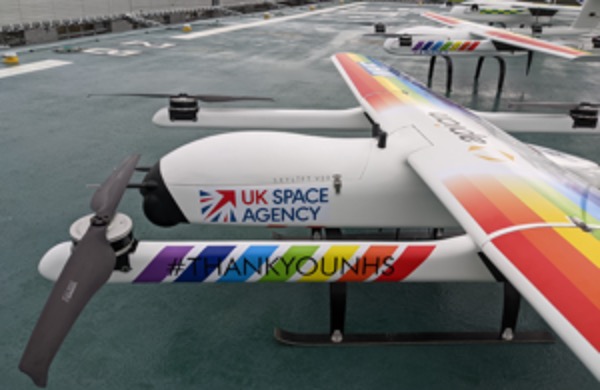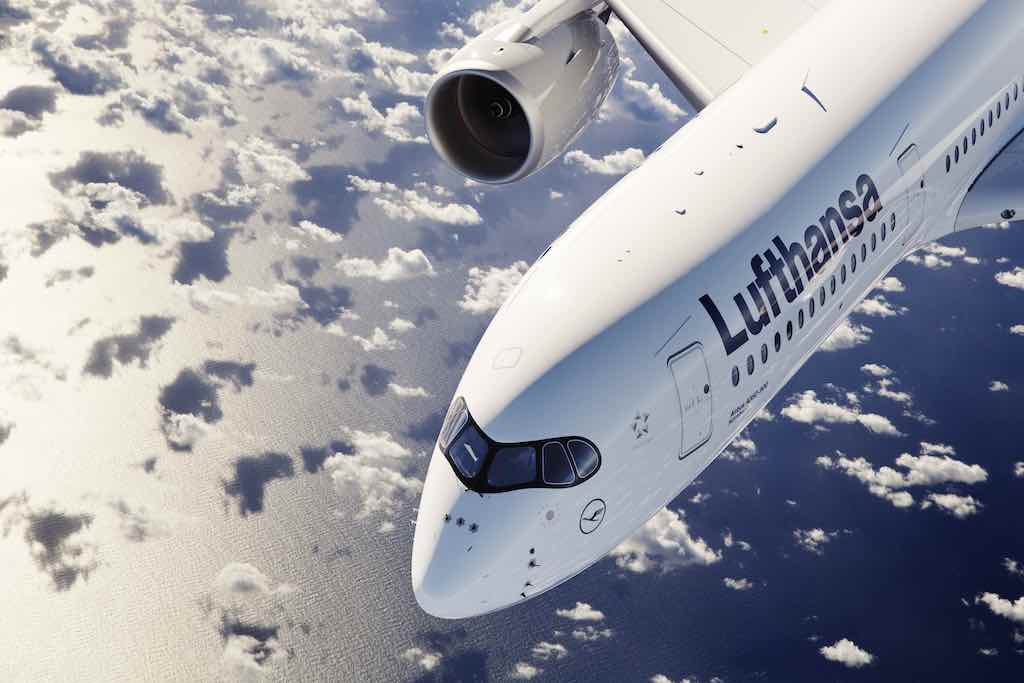
The UK Space Agency has backed a healthcare drone start-up founded by NHS staff, to help in the response to COVID-19.
Apian, part of the NHS Clinical Entrepreneur Programme, aims to establish a network of secure air corridors for electric drones to navigate via satellite-enabled GPS.
Each drone will be able to carry COVID-19 samples, test-kits and PPE. This will avoid courier call-out waiting times, free-up NHS staff, reduce unnecessary physical contact and minimise the risk of secondary transmission of the virus.
The project will be based at Broomfield Hospital, part of Mid and South Essex NHS Foundation Trust and will be supported by the local Anglia Ruskin University as the academic partner. Befittingly, the hospital stands on a WW1 Royal Flying Corps Airfield.
Science Minister Amanda Solloway said: “The efforts of the UK’s space sector to support our incredible NHS during the COVID-19 pandemic have been truly inspirational.
“The projects we are backing today are fantastic examples of how our leading space scientists are supporting those directly on the frontline to help prevent the spread of coronavirus.
Christopher Law, from Apian said: “COVID-19 has highlighted challenges in NHS supply chain logistics. There has never been a better time to create a faster, more dependable and environmentally friendly method of transporting medical supplies.
“We are confident that by setting up a medical drone delivery service, we’ll be able to fly samples to labs more regularly, reliably and quickly, improving patient health outcomes.
The healthcare drone company is one of three new projects using space-enabled technologies and services to support the NHS in the ongoing battle against COVID-19.
The UK Space Agency is also backing DriverNet – a mobile app that will use satellite technology to provide access to more affordable community transport for people wishing to go to and from COVID care providers, and those looking to participate in community sport.
By using artificial intelligence to batch patients by their ‘geolocation’ – their mobile phone location triangulated by satellites – and encouraging transport sharing, costs and miles could be cut by half. This could also help reduce the 15 million missed NHS appointments each year.
NHS workers and patients will get a notification through text or on their app when shuttle services are available in their area.
Professor Tony Young, the NHS national clinical lead for innovation, said: “At the same time as the NHS came together to fight a pandemic and treat over 110,000 severely ill people for COVID-19, staff have also gone above and beyond to create innovative ways for patients to get the care and kit they need alongside the UK Space Agency.
“This study which will create droneways in the sky for vital NHS supplies is the latest in a longline of projects founded by the NHS Clinical Entrepreneur Programme to provide innovative solutions to the challenges facing the NHS for the benefit of patients and staff.
Also being backed today is the delivery of a remote platform for Earth Observation learning.
The collaboration, led by the University of Edinburgh, builds on the Earth Blox (Quosient Ltd.) cloud-based software for harnessing planetary-scale satellite-intelligence.
The collaboration will provide distance learning support to students who would have been studying Earth Observation science. Earth Observation students will be our next generation of climate change specialists, weather forecasters and digital pioneers.
The projects – set to receive £1.3m of funding – have been selected as part of a joint initiative between the UK Space Agency and the European Space Agency (ESA) which has already provided one round of funding in July, worth £1.1 million, to companies developing space based solutions for issues created by COVID-19.
Initial funding went to three initiatives, including a drones company delivering test kits in Scotland and another project that used space data to support vulnerable people through a mobile application.
Emily Gravestock, Head of Applications Strategy at the UK Space Agency, said: “Once again, the UK space industry has risen to the challenge. The variety of innovative solutions continues to impress me and I look forward to seeing how satellite applications built by UK industry can improve healthcare services, reduce carbon emissions and enhance education.
The UK Space Agency and ESA are still looking to fund further bids with the call for ideas remaining open until 15 January 2021.

